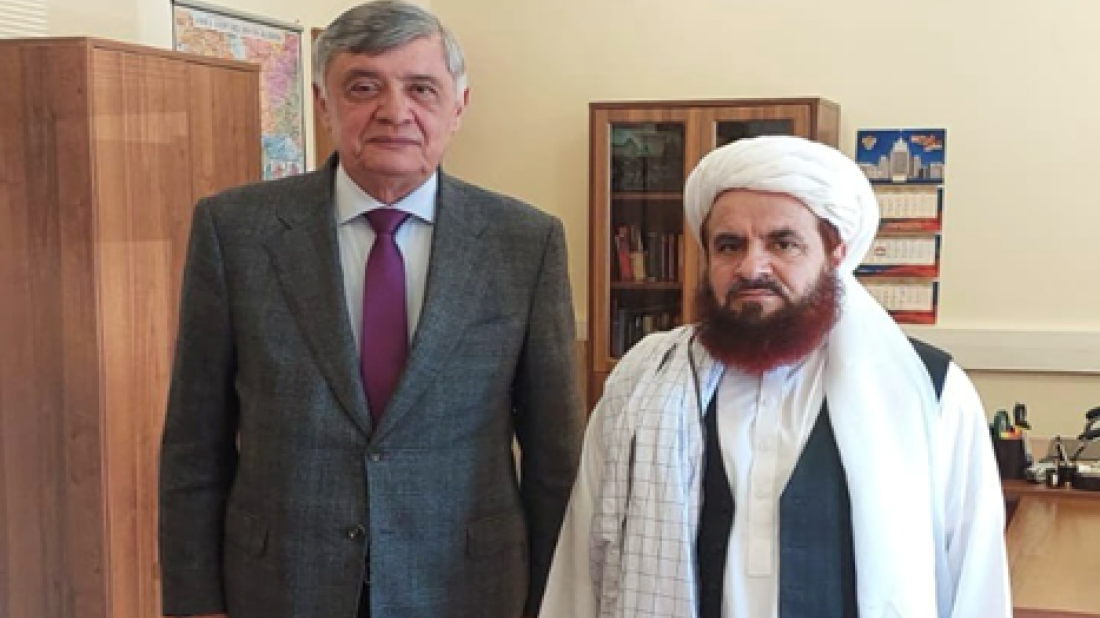'Productive' first day of peace talks in Abu Dhai between Ukraine, Russia and U.S.
Ukrainian and Russian officials wrapped up a "productive" first day of new U.S.-brokered talks in Abu Dhabi, Kyiv's lead negotiator said on Wednesday ...

The Ambassador of Afghanistan to Russia, Ghulam Hassan, has met with Zamir Kabulov, Moscow’s Special Envoy for Afghanistan, to discuss deepening ties and regional engagement, the Afghan embassy in Moscow said on Wednesday.
According to the embassy statement, the two sides spoke about strengthening bilateral relations and Afghanistan’s future role in the Shanghai Cooperation Organization (SCO). At the group’s most recent summit, many member states voted in favour of granting Afghanistan observer status, paving the way for the country to join official meetings.
Hassan was quoted as saying Afghanistan’s participation in such forums was a “fundamental need for connecting with the region”.
This development comes as the Taliban authorities have stepped up appearances on the international stage. The group previously sent representatives to the COP29 climate summit, joined discussions at the Economic Cooperation Organization (ECO) conference in Baku earlier this year, and received an invitation to an Organisation of Islamic Cooperation (OIC) meeting, though it ultimately did not attend.
Shafi Azam, a senior official from the Afghan ministry of foreign affairs told Anewz that the SCO step is symbolically important.
“Observer status doesn’t mean recognition, but it does mean visibility and a platform.” Azam further stated that “this can help Kabul project themselves as legitimate actors in the region.”
Afghanistan’s increasing engagement contrasts sharply with conditions inside the country. According to the United Nations World Food Programme (WFP), more than 15 million Afghans are facing acute food insecurity. Meanwhile, basic services such as healthcare remain under strain, with WHO warning of malaria outbreaks in several provinces.
Russia’s Kabulov has previously stated that “stability in Afghanistan is crucial for regional security”, while critics argue that inviting the Taliban into multilateral settings risks sidelining concerns about human rights, especially women’s education and employment.
Cuba’s Deputy Foreign Minister Carlos Fernández de Cossío has denied that Havana and Washington have entered formal negotiations, countering recent assertions by U.S. President Donald Trump, while saying the island is open to dialogue under certain conditions.
Talks with the U.S. should be pursued to secure national interests as long as "threats and unreasonable expectations" are avoided, President Masoud Pezeshkian posted on X on Tuesday (3 February).
Mexico said it will stop sending oil to Cuba as U.S. President Donald Trump ramped up pressure on the Caribbean nation.
Ukrainian President Volodymyr Zelenskyy accused Russia on Tuesday (3 February) of exploiting a U.S.-backed energy ceasefire to stockpile weapons and launch large-scale drone and missile attacks on Ukraine ahead of peace talks.
Paris prosecutors have summoned X chairman Elon Musk and former chief executive Linda Yaccarino for questioning in April as part of their probe into the X social media network, they said on Tuesday.
Ukrainian and Russian officials wrapped up a "productive" first day of new U.S.-brokered talks in Abu Dhabi, Kyiv's lead negotiator said on Wednesday (4 February).
Nearly 200 people were killed when armed men launched coordinated attacks on remote villages in western and northern Nigeria, authorities and residents said on Wednesday (4 February). Officials described the assaults as among the deadliest this year, amid the country’s worsening security crisis.
The United States and Argentina have signed a framework agreement to strengthen cooperation on critical minerals on Thursday, reaffirming a shared commitment to building secure, resilient and competitive supply chains.
Russia said on Wednesday that the parties to the New START nuclear arms control treaty are no longer bound by its obligations or related declarations, marking a further erosion of the last remaining legally binding framework limiting U.S. and Russian strategic nuclear forces.
Milan prosecutors have placed an elderly Italian man under investigation over allegations that foreigners paid to shoot at civilians during the 1990s siege of Sarajevo, sources with direct knowledge of the case said on Wednesday.
You can download the AnewZ application from Play Store and the App Store.

What is your opinion on this topic?
Leave the first comment